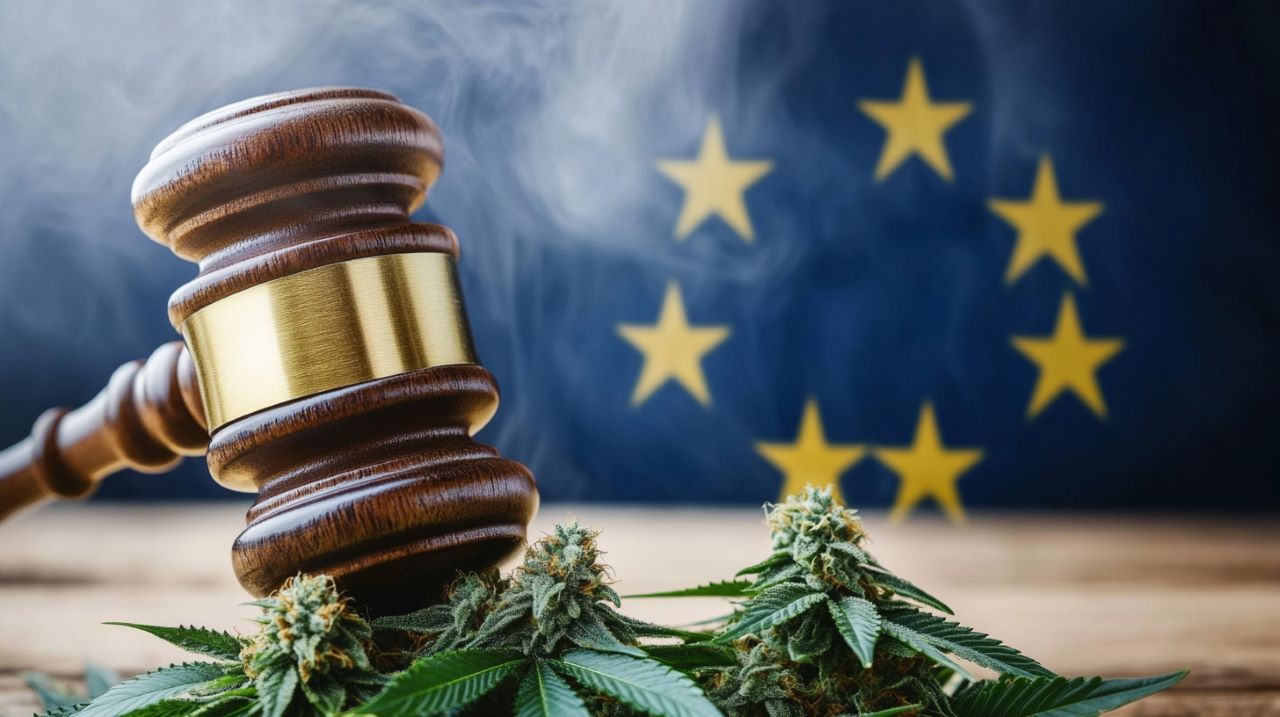
Cannabis laws in Europe remain a complex patchwork of regulations that vary significantly from country to country. While some nations embrace progressive policies, others maintain strict prohibitions.
For cannabis tourists, understanding these legal nuances is essential to ensuring a safe and trouble-free trip.
Countries with Progressive Cannabis Policies
Europe’s progressive cannabis policies are largely concentrated in Western and Southern Europe, where countries like the Netherlands, Spain, and Germany have led the way in embracing more tolerant or regulated approaches. These nations have either decriminalized possession for personal use or legalized cannabis consumption in specific settings, offering tourists an opportunity to explore cannabis culture while staying within the law.
The Netherlands
The Netherlands is often viewed as a pioneer in cannabis decriminalization. While cannabis remains technically illegal, its use and sale in licensed coffee shops have been tolerated for decades. Tourists can legally purchase and consume cannabis in these establishments under regulated conditions. However, new proposals aimed at banning non-residents from coffee shops, particularly in Amsterdam, may soon impact tourism. Local authorities have also cracked down on smoking in public areas like the Red Light District, imposing fines for violations.
Spain
Spain’s approach revolves around Cannabis Social Clubs — non-profit, member-only associations that allow adults to consume cannabis privately. While consumption within these clubs is legal, public consumption and commercial sales remain prohibited. Tourists can technically join clubs, but they must be invited or referred by an existing member. Barcelona leads the way in this model, but travelers should exercise caution and remain within club premises to avoid legal trouble.
Germany
Germany’s legalization of recreational cannabis, set to take effect in April 2024, will mark a major milestone for Europe. Adults aged 18 and older will be able to possess up to 25 grams for personal use and grow up to three plants at home. Public consumption will be permitted under specific conditions, though near schools, playgrounds, or public transport hubs, it will remain banned. Germany’s federal structure means individual states may impose their own restrictions, so travelers should monitor regional rules closely.
Czech Republic
The Czech Republic is one of Europe’s most cannabis-tolerant nations. While cannabis remains technically illegal, possession of small amounts (up to 10 grams) and cultivation of up to five plants for personal use have been decriminalized since 2010. Offenders face fines rather than criminal charges.
Prague, the capital, has become a hotspot for cannabis culture enthusiasts due to its relaxed enforcement. Cannabis paraphernalia shops, CBD cafes, and cannabis-themed events attract visitors looking for an alternative European experience. However, tourists should remain cautious, as public consumption can still result in fines.
Portugal
Portugal has been a leader in drug policy reform since decriminalizing the possession of small quantities of all drugs in 2001. Possession of up to 25 grams of cannabis is treated as a minor administrative offense rather than a criminal act. While cannabis sales remain illegal, the country’s tolerant approach makes it a relatively safe destination for discreet cannabis consumption.
Malta
As the first EU country to fully legalize recreational cannabis, Malta allows residents to possess up to 7 grams and grow up to four plants at home. Licensed, non-profit cannabis associations are also permitted to distribute cannabis to their members. However, for tourists, access remains limited as public consumption and sales outside associations are still prohibited.
Countries with Mixed or Restrictive Policies
Poland
While medical cannabis was legalized in Poland in 2017, recreational use remains strictly illegal. Possession of even small amounts can lead to fines, mandatory drug counseling, or imprisonment. However, there is growing support for reform among younger generations and activists. The country’s medical cannabis market is expanding, but for tourists, all recreational consumption is off-limits.
France
Despite its reputation for progressive culture, France has some of Europe’s strictest cannabis laws. Recreational use remains illegal, and possession can result in fines of up to €200 or criminal prosecution in severe cases. Recent efforts have been made to explore medical cannabis programs, but tourists should avoid all cannabis use in France.
Sweden
Sweden enforces a zero-tolerance policy on cannabis, where even small amounts can lead to hefty fines, mandatory drug tests, or imprisonment. Authorities actively discourage cannabis use, and public attitudes remain largely conservative.
Eastern Europe
Many Eastern European countries, including Hungary and Romania, maintain restrictive cannabis laws. Possession of even trace amounts can result in jail time or heavy penalties.
Tips for Cannabis Travelers
To navigate Europe’s cannabis laws responsibly, tourists should keep the following in mind:
- Know the Local Laws: Always research the cannabis regulations of your destination country. Penalties for possession and use can vary dramatically.
- Avoid Public Consumption: Even in cannabis-friendly destinations like Amsterdam or Prague, public consumption may still be subject to fines. Use designated areas or private spaces.
- Carry Only Small Amounts: Possessing more than a legally defined amount can escalate the offense, even in countries with decriminalized laws.
- Use Reputable Resources: Websites like Herbies Seeds offer essential guidance on strains, local laws, and safe consumption practices for cannabis enthusiasts.
- Respect Local Customs: Cannabis laws often reflect cultural attitudes, and overt consumption may offend local sensibilities. Be discreet and mindful of your surroundings.
The Road Ahead
While Europe’s cannabis landscape remains fragmented, a trend toward decriminalization and legalization is undeniable. The Czech Republic and Portugal provide models for harm-reduction policies, while Germany and Malta lead the charge toward full legalization. Countries like Poland remain restrictive but show signs of potential reform as public sentiment shifts.
For cannabis tourists, Europe offers a dynamic mix of opportunities, from Prague’s relaxed atmosphere to Barcelona’s exclusive clubs. By staying informed and respectful of local laws, travelers can responsibly enjoy the continent’s evolving cannabis culture while ensuring a trouble-free experience.
